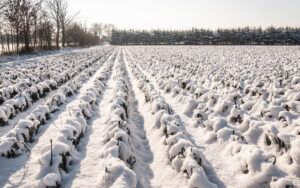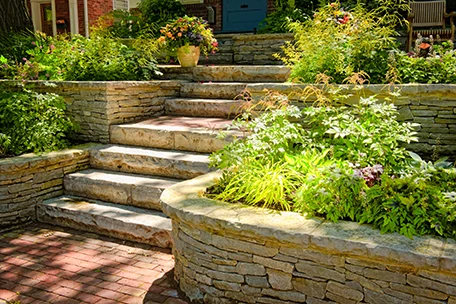 Typically when you think of gardening, you imagine that it is a spring and summer activity. However, there are quite a few things that you can plant and grow through the winter. In fact, winter planting can help grow your heartier plants, as there are less pests to eat your young seedlings. Make sure to check the weather to ensure that your plants are in the ground before winter freezing. Read on for six things you can plant in your garden, even at the beginning of winter.
Typically when you think of gardening, you imagine that it is a spring and summer activity. However, there are quite a few things that you can plant and grow through the winter. In fact, winter planting can help grow your heartier plants, as there are less pests to eat your young seedlings. Make sure to check the weather to ensure that your plants are in the ground before winter freezing. Read on for six things you can plant in your garden, even at the beginning of winter.
Bulbs
You can plant bulbs in early November to prepare for a flowering spring. While many varieties need to be planted earlier, there are some that you can still plant in November. Dig a hole at least 3 times the height of the bulb, so about 8” deep for big bulbs and 5” deep for small bulbs. Make sure to plant your bulbs generously in case one or more do not grow.
Peas
Peas can be planted in the fall to allow them to be ready to eat in early spring. Peas will add nitrogen to the soil, allowing other plants to grow after them. Peas are pretty hearty, and are typically planted in January or February. Depending on the type of pea you plant, put stakes of the appropriate height in the ground and string twine along the middle and top of the stakes. This will help support the peas as they grow.
Garlic
Some varieties of garlic can be planted in the winter. They are some of the easiest plants to grow, and also keep longer than many other plants. Garlic must be planted so that it is fully in the sun. Be careful, for if garlic is planted too late, the roots will not have time to grow and the plant will die before the spring.
Onions
Many onions can be planted in the winter months for harvest in May through July. Onions need space to grow, so plant them at least four inches apart. Onions can be planted from seeds, transplants or sets.
Winter Lettuce
Many types of lettuce can be planted in November if you keep them covered, or grow them indoors. Lettuce actually needs colder temperatures to thrive, so winter can be a great time for planting.
Mushrooms
Mushrooms are simple to grow, in fact, you’ve probably seen them sprouting up in your garden without you planting them (don’t eat those mushrooms as they are probably poisonous). Fungi are extremely durable and can survive in harsh weather.

